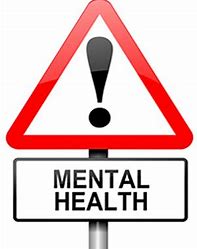No parent, teacher or carer wants to bear witness to a child suffering for any reason. Mental illness is exceptionally difficult to watch because you can’t see or comprehend the source and it can be so incredibly painful. We know that presently 1 in 10 children in every primary and secondary school is experiencing some form of mental disorder. 13% of children aged 8 and up will experience a severe mental disorder before they are old enough to drive; sobering statistics.
Mental disorders among teens and young adults have been rising steadily for the past decade. The reasons could be environmental (i.e. family, school & social media), situational (i.e. a traumatic event), physical (i.e. hormones & genetics), or indeed a combination of these. But we also know that we as a society are slowly becoming more willing to open up about our needs and thus the recognition of the complexity in young people’s lives is increasing. I also believe that social media has played its part in the ongoing impact of mental health needs.
In 2017, according to a study from the Journal of Abnormal Psychology, 13% of people between ages 12 and 25 had symptoms akin to major depression (they may not have been diagnosed) within the previous year—a 57% increase from 2008.
Now more than ever, opening up the conversation means so much and continues to make a positive difference to children’s lives.
Does your child need support?
One of the biggest challenges for parents and carers is recognizing and identifying the difference between a psychological issue and the normal developmental changes that happen during these formative years. Adolescence involves the very greatest brain changes for a person. It is very much a rollercoaster, both positive and negative; mood swings, disinhibition and dysregulation are to be anticipated and expected. Ultimately it means that adolescents are also vulnerable to mental health difficulties too.
If you suspect that something is not going well for your child and are concerned about their mental health needs it is important to look at their behaviour at home, school and within their social groups.
Family functioning.
It’s normal for family members to squabble and have disagreements, as well as for kids to push back against parental rules and boundaries. However if your child is suddenly getting into frequent or escalating conflicts with family members that don’t get resolved, that’s a warning sign of a potential problem.
Academic functioning.
School is a major portion of any child’s life, so significant changes in results or attitude and application about school or schoolwork that are out of the ordinary could be an indicator of a potential difficulty. Teacher input is often a helpful first step.
Social functioning.
Is your child struggling to get along with friends and classmates? Has she withdrawn from or become reluctant to participate in social activities? If yes, these are all warning signs and it is important to gently notice and identify these feelings for your child.
Common Symptoms of Mental Illness in Children
Psychological problems can largely be divided into two areas; externalizing or internalizing.
As you might guess, externalized behaviour problems are easier to spot, because signs include things you can see: behavioural changes, fighting, hyperactivity and destructive behaviour. Internalized problems are often emotional (such as depression) and thus much more difficult to spot.
Here are six symptoms to watch out for:
Mood changes.
All children (and adults) are prone to mood swings. But pay attention to the point where children are very sad for extended periods of time or become lethargic and withdrawn, not enjoying or engaging in previously exciting activities.
Intense feelings of anxiety.
Be alert for a child who’s overly anxious, especially if it leads to physical symptoms like a racing heart. While a little bit of anxiety is normal and can be a good thing—if it motivates your child to study or practice, for instance—“too much impairs performance, and children really suffer.” Two easily overlooked physical signs are: unexplained headaches or stomach-aches.
Difficulty concentrating.
A teacher might report that your child is having unusual trouble sitting still or paying attention, or you may notice this problem at home.
Changes in eating or sleeping habits.
If your child is suddenly suffering from insomnia—or, conversely, tries to sleep all day—it could be a signal to seek psychological support.
Quick weight loss.
A noticeable lack of appetite or quick weight loss could indicate developing issues with concern to a possible eating disorder, especially in adolescents.
Experimentation with illicit substances.
Many adolescents try cigarettes, alcohol, and drugs. If this behaviour coincides with declining grades or a change in peer group it is again an area of concern and it is vital that the channels of communication remain open with the young person.
As a Chartered Educational and Child Psychologist of 15 years, Hannah Abrahams specialises in working with Children, Young People, Parents and Carers in supporting the development of their emotional, cognitive and learning needs as well as their mental health. She is highly experienced and has worked in many challenging settings including running a team of Psychologists working with the survivors of the Grenfell Tower. As well as being a lead in Trauma and Bereavement she specialises in working with Children diagnosed with Autism and communication difficulties. Hannah regularly talks as an expert on BBC Radio and TV. She would be delighted to open up further conversation and supportive, nurturing and creative advice about mental health issues facing young people and how in today’s busy world you are best equipped to navigate and best support children’s wellbeing.

